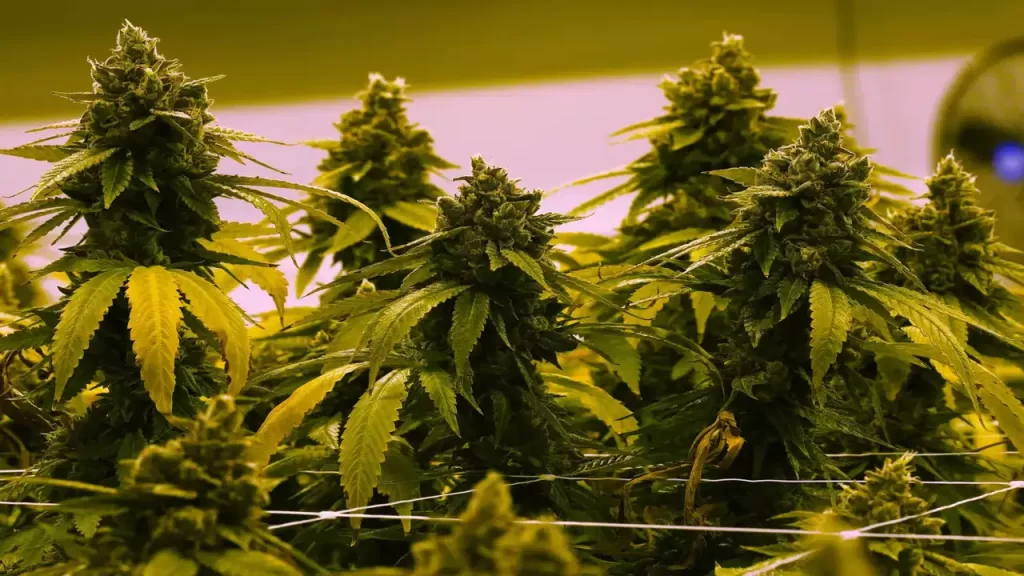The Green Revolution: Cannabis Legalization Around the World
Defining Cannabis and Its Historical Use
Cannabis sativa is a plant from the Cannabaceae family. Humans have been using it for thousands of years, primarily as a source of fibre and medicine. The psychoactive compound in cannabis, delta-9-tetrahydrocannabinol (THC), was first identified in 1964.
Since then, scientists have been studying its potential medical benefits and drawbacks. Historical evidence suggests that cannabis was used for medicinal purposes as early as 3000 BCE in China.
Ancient Egyptians, Greeks, and Romans also used cannabis for various ailments, such as pain relief, inflammation reduction, and fever reduction. In India, cannabis was considered sacred and was used in religious rituals.
Cannabis became widely popular in the United States during the 19th century to treat conditions such as migraines and menstrual cramps. It wasn’t until the early 20th century that its recreational use became more widespread. This led to a crackdown on its use by authorities.
The Current Global Landscape on Cannabis Legalization
In recent years, there has been a wave of legalization across North America, made up of Canada and several states in the U.S. This led to increased interest around the world. Canada legalized cannabis for recreational use nationwide on October 17th, 2018. It made only one of two countries do so at a national level – Uruguay is the other one did it back in December 2013. As of now (2021), several countries have legalized or decriminalized cannabis at some level, such as some regions within Australia or even Georgia. They legalized consumption but not production or sale yet.
However, many others still consider it an illegal drug with harsh punishments, including imprisonment or even death sentence. With new policies and regulations being implemented frequently, the global landscape surrounding marijuana is changing rapidly.
This has led to a lot of debate about the pros and cons of legalization. Many argue that it could lead to increased tax revenue, decreased crime rates, and improved public health outcomes. However, others are concerned about the potential negative consequences, such as impaired driving or addiction.
The Global Landscape on Cannabis Legalization
Cannabis legalization has been a topic of discussion and debate worldwide for several years. Currently, there are various levels of legalization in different regions across the globe. The North American area, including Canada and the United States; Europe, including The Netherlands, Spain, Portugal, Germany, and others; Latin America, including Uruguay and Mexico; and Asia, including Israel, have all taken different approaches to cannabis legalization.
North America: Canada and the United States
Canada became the second country in the world to legalize recreational cannabis use nationwide in 2018, following Uruguay’s lead. In Canada, the federal government regulates production while distribution is left to the provinces.
This has led to differing regulations between provinces, with some allowing private retail sales while others only allow sales through government-run stores. In contrast to Canada’s federal approach, cannabis regulation in the United States is done by individual states rather than at a national level.
Although cannabis remains federally illegal in the U.S. under Initiative 71, Washington DC, weed legalization has taken place since 2015. This has created a complex system where state laws on cannabis conflict with federal laws, leading to legal gray areas.
The impact of legalization on the economy, public health, and criminal justice system varies between both countries as well as between states within them. Studies show that cannabis legalization creates economic opportunities through job creation and increased tax revenue for governments. While it potentially reduces criminal activity related to drug trafficking.
Europe: The Netherlands, Spain, Portugal, Germany and Others
The Netherlands is famous for its “coffee shops,” where marijuana can be legally purchased despite it being illegal under Dutch law. However, recently, Dutch authorities have started cracking down on these establishments. Due to pressure from other European countries who view relaxed drug policies as an issue of cross-border crime.
Spain allows its citizens to grow up to six cannabis plants per household for personal consumption. However, commercial cultivation and distribution remain illegal. Portugal decriminalized all drugs in 2001, including cannabis. It treats drug addiction as a public health issue rather than a criminal one.
Germany legalized medical marijuana in 2017, but recreational use remains illegal. Other countries such as Italy, Switzerland, and the Czech Republic have also legalized medical cannabis use.
The impact of these policies on the economy, public health, and the criminal justice system is varied. Some countries have seen a decrease in drug-related criminal activity, while others have not seen any significant impact.
Latin America: Uruguay and Mexico
Uruguay became the first country to fully legalize both production and sale of marijuana in 2013. The government regulates cultivation, while sales are left to pharmacies who require licenses to sell cannabis products. Mexico legalized medical marijuana in 2017, which marked a significant shift from the country’s previous zero-tolerance approach to drug policy.
The Supreme Court has also ruled that prohibiting the recreational use of marijuana is unconstitutional. But legislation still needs to catch up with this ruling. Legalization has had an impact on Mexico’s economy through job creation, reduced law enforcement costs, and increased tax revenue for governments. It also reduced violence related to drug trafficking.
Asia: Israel
Israel legalized medical marijuana use in 1992 and is home to some of the world’s leading research on cannabis therapeutics. In addition to medical use being legal, Israel allows for industrial hemp cultivation with THC levels lower than 0.3%. The Israeli government views legalization as an economic opportunity through the exportation of cannabis products worldwide. It also advanced research into its therapeutic potential.
Legalization has had an impact on Israel’s economy through job creation and increased revenue from exports. It provides patients with access to alternative therapies. Global approaches towards cannabis legalization vary greatly depending on cultural norms regarding drug policy as well as the legal frameworks of individual countries.
While some countries have seen positive impacts on the economy, public health, and the criminal justice system, others have not seen significant change. It is important to continue monitoring the effects of legalization as more countries adopt it in order to create policies that best serve their populations.
The Future of Cannabis Legalization: A Global Outlook
Potential for More Countries to Legalize Cannabis
As the stigma surrounding cannabis use continues to dissipate, more countries are moving towards legalization. Many nations are looking at the success stories of their neighbors who have legalized cannabis. Moreover, they are considering it as a viable option. For example, Mexico recently passed a bill legalizing recreational use of marijuana. It became the third country in the world to do so after Canada and Uruguay.
Other countries like Argentina, Brazil, and Colombia have all started discussions about legalizing medicinal cannabis. In addition to these countries, more U.S. states have embraced recreational marijuana legalization since Colorado first did so in 2012.
Today, 36 states plus Washington D.C. allow some form of medical or recreational marijuana use via Washington DC Dispensary and other establishments. With more states seeking legalization through ballot initiatives or legislative action, the trend is expected to continue.
Changes in Regulations for Youth Access and Public Safety
As more countries legalize cannabis, there is increasing concern about how it may impact youth access and public safety. One solution is to establish regulations that will prevent underage access while ensuring public safety by setting potency limits and regulating impaired driving. Regulators can learn from existing frameworks, such as those implemented in Colorado. Under these, it requires childproof packaging and prohibits advertising near schools.
However, some argue that too much regulation can hinder research opportunities into medical applications of cannabis, which could be beneficial for public health. As regulations continue to evolve over time, stakeholders must find a fine balance between upholding public health standards and promoting scientific advancements.
Opportunities for Research on Medical Applications
Perhaps one of the most significant benefits of legalization is the increased opportunity for scientific research into medical applications for cannabis. Studies show promising results for treatments like pain management, epilepsy treatment, and anxiety disorders, among others. Currently, researchers face multiple barriers to conducting rigorous studies on cannabis due to its classification as a Schedule I drug.
As such, researchers must overcome stringent regulatory processes to access materials for research. However, as more countries legalize cannabis, there is growing interest in further exploring its potential medicinal properties.
In the U.S., there have been multiple calls to change the classification of cannabis to allow for easier and more substantial research opportunities. This shift could lead to significant advancements that could improve public health outcomes globally.
Niche Subtopics in Cannabis Legalization
Social Equity Programs: Addressing Past Harms of Drug Policies
The war on drugs has disproportionately affected communities of colour, leading to the mass incarceration of Black and Latino individuals for nonviolent drug offences. In the wake of cannabis legalization, there has been a push to create social equity programs in states like Washington, DC, that prioritize licenses and other business opportunities for those whom drug policies have negatively impacted. It has shown a positive answer to issues like “Why is the weed in Washington DC good?”.
These programs include provisions for expunging criminal records for past cannabis offences, providing job training and financial support to people from marginalized communities, and enabling them to participate meaningfully in the cannabis industry. Social equity programs can help address the deeply entrenched racial inequalities that have resulted from decades-long drug policies.
However, implementing these programs effectively requires careful planning and substantial resources. Governments must ensure that these programs are adequately funded so that participants have access to training, capital, and other resources necessary to succeed in the industry.
The Impact of Cannabis Tourism
With more countries legalizing cannabis use and possession, cannabis tourism is becoming increasingly popular worldwide as travellers look for new experiences. Destinations such as Amsterdam in the Netherlands and Denver in Colorado are already popular among cannabis enthusiasts looking to enjoy their favourite strains while taking in new sights.
However, while this may bring much-needed revenue to local economies, there are concerns about how it may impact locals’ quality of life. One major concern is whether increased tourism will lead to overconsumption or public nuisance issues like smoking or vaping in public places.
Officials must consider how best to regulate consumption while also preserving public health and safety standards. Additionally, local governments should invest some revenue generated from cannabis tourism back into their communities rather than solely focusing on profit-making ventures such as hotels or dispensaries.
Conclusion
The global landscape surrounding cannabis legalization is rapidly changing, with more countries embracing its use and various regulatory frameworks emerging. While cannabis legalization presents opportunities for economic growth, social equity programs, and research into medical applications of cannabis, there are also concerns about overconsumption, public safety, and access to it.
Nonetheless, with proper regulation and planning in place- the benefits of cannabis legalization can be maximized while mitigating its potential negative impacts. Countries across the globe must learn from each other regarding best practices in regulating this new industry to move forward positively.



1 thought on “Cannabis Liberation: A Global Perspective on Legalization and the Path Ahead”
Pingback: Cannabis Strains for Productivity in Washington DC
Comments are closed.